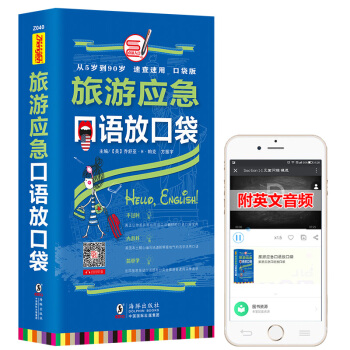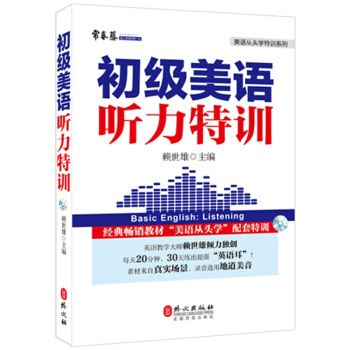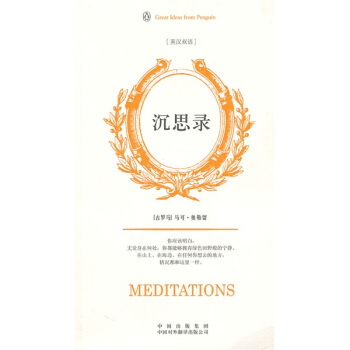![西遊記故事(英文版) [Journey to the West With the Stone Monkey ]](https://pic.windowsfront.com/10678468/58ce8319N4664cb65.jpg)

具體描述
內容簡介
該係列圖書精選自中國古代經典小說名著,為方便外國讀者理解,專門請有關專傢對原著進行縮寫改編,內容涵蓋原著中有代錶性的情節和故事,通過這些可讀性強的故事傳達齣其中蘊含的中國傳統文化精髓,吸引國外讀者的閱讀和探究興趣,齣版後特彆受到國外讀者喜愛。
作者以另一種通俗易懂的文字加漫畫的形式敘述瞭唐僧四人西天取經的過程。
This is the amazing story of Sun Wukong, known in the West as the Monkey King. He is the principal character of this classic Chinese epic novel in which he accompanies the monk Sanzang on the journey to retrieve Buddhist sutras from India.Wukong possesses immense strength, being able to wield his 8,000 kg. magic weapon with ease. He has superb speed, travelling 54,000 kilometers in one somersault. Sun knows 72 transformations, which allow him to transform into various animals and objects. He is a skilled fighter, capable of holding his own against the best generals of heaven. Each of his hairs possesses magical properties, and is capable of transforming into a clone of Sun Wukong himself, or various weapons, animals, and other objects. He also knows various spells in order to command wind, part water, conjure protective circles against demons, freeze humans, demons, and gods alike.In this journey with the monk Sanzang, Wukong is accompanied by Bajie and Sandy, lovable if flawed characters, both of whom offered to accompany the monk to atone for their previous crimes.
作者簡介
Y. C. PAN was born in Taiwan in 1935. Heemigrated to Toronto,
Canada in 1962 andenrolled at the University of Toronto. Afterworking as an economist, Pan embarked on acareer with the government and the CanadianInternational Development Agency.The "Stone Monkey" fable is based on hisrecollections as a young parent telling storiesto his three growing children who were alwayshis wide-eyed audience.
內頁插圖
目錄
PART I
Chapter 1: The Birth of the Magic Monkey
Chapter 2: The Stone Monkey Becomes King
Chapter 3: Monkey King is Struck by the Notion of Mortality
Chapter 4: The Monkey King Seeks Immortality
Chapter 5: Sun Wukong Learns Immortality
Chapter 6: Sun Wukong Reestablishes his Kingdom
Chapter 7: Sun Wukongs Kingdom Thrives
Chapter 8: Sun Wukong Acquires the Weapon of his Choice
Chapter 9: Sun Wukong Raids the Underworld
Chapter 10: Sun Wukong Gets a Job in Heaven
Chapter 11: Sun Gets his Title of Heavenly Grand Fairy
Chapter 12: Sun Steals the Heavenly Peach and Longevity Pills
Chapter 13: Heavenly Army Attacks Sun
Chapter 14: The Buddha Vanquishes Sun Wukong
Chapter 15: The Buddha Wishes to Save the Souls of Mankind ..
Chapter 16: Kuanyins Recruitment Tour
Chapter 17: Birth of the Holy Monk
Chapter 18: Chinese Emperor Tours the Underworld
Chapter 19: Monk Chen Volunteers to Go West
Chapter 20: Sanzangs (Monk Chen) Journey Starts
Chapter 21: Sun WukongJoins Sanzang
Chapter 22: Sanzang Collects More Disciples
Chapter 23: The Theft of the Robe and the Submission of th Black Bear
Chapter 24: Zhu Bajie (Di Baggai) Joins
Chapter 25: Sha Wujing (Sandy) Joins, Completing the Pilgrim Team
Chapter 26: Gods Test the Teams Integrity and Resolve
Chapter 27: Encounter With Baby-Shaped Fruit Tree
Chapter 28- Wukong is Banished After Killing the Demon of Ble Skeleton
Chapter 29: Sun Goes Home
Chapter 30: Yellow Robe Demon Defeats Bajie and Sandy
Chapter 31: Sun Wukong Rejoins the Pilgrim Team
Chapter 32: Troubles With Gold Horn and Silver Horn
PART 2
Chapter 1 : The Dead King in the Well
Chapter 2 : Reviving the Dead King
Chapter 3 : Sun Wukong Gets Burned by the Red Infant
Chapter 4 : Kuanyin Tames the Red Infant
Chapter 5 : The Black Water Demon Captures Sanzang
Chapter 6 : The Dragon King Tames the Black Water Demon
Chapter 7 : The Monks of Chechi Kingdom Enslaved by Demons
Chapter 8 : Sun Wukong, Bajie and Sandy Enjoy the Feast Disguised as Deities
Chapter 9 : Encounter with Tiger, Deer and Goat Demons
Chapter 10 : The Contests Against the Three Demons
Chapter 11 : Crossing the Trans-Heaven River
Chapter 12 : Bajie Beats Up the King of Divine Sense
Chapter 13 : The King of Divine Sense Freezes the River and Captures Sanzang
Chapter 14 : Kuanyin Retrieves the Gold Fish in a Bamboo Basket
Chapter 15 : Old Tortoise Ferries the Pilgrims Across the River
Chapter 16 : The One-Horned Monster with a Platinum Bracelet
Chapter 17 : Fighting the One-Horned Monster
Chapter 18 : Sanzang and Bajie Get Pregnant
Chapter 19 : The Amazon Queen Wants to Marry Sanzang
Chapter 20 : The Trouble in Peepah Cave
Chapter 21 : Sun Wukong is Banished for Killing Bandits
Chapter 22 : The Fake Sun Wukong Harasses the Pilgrims
Chapter 23 : The Flaming Mountain Obstructs the Journey
Chapter 24 : Sun Wukong Tries to Borrow the Banana-Leaf Fan
Chapter 25 : The Fight With the Buffalo King
Chapter 26 : The Treasure Thief: a Nine-Headed Demon
Chapter 27 : Thorns Block the Path to the West
PART 3
Chapter 1 : Fake Buddha Captures Sanzang
Chapter 2 : The Killing of the Boa Constrictor
Chapter 3 : Rescuing a Kidnapped Queen
Chapter 4 : Adventure in the Cobweb Cave
Chapter 5 : The Three Demon Masters
Chapter 6 : Encounter with the Blue Lion, White Elephant, and the Condor
Chapter 7 : Rescue of One thousand, One Hundred and Eleven Babies
Chapter 8 : Seduction in the Bottomless Cave
Chapter 9 : The Buddhist-Killing Kingdom
Chapter 10 : The Demon with a Pestle
Chapter 11 : Producing Rainfall
Chapter 12 : Showing Off the Weapons and Tempting a Demon
Chapter 13 : The False Buddha Stealing Oil
Chapter 14 : The False Princess Tries to Marry Sanzang
Chapter 15 : Tycoon Kou Entertains the Pilgrims
Chapter 16 : The Pilgrims Enter the Territory of the Western Heaven
Chapter 17 : The Sutras Obtained
Chapter 18 : Returning to Chang-An
Chapter 19 : Mission Accomplished, Five New Deities Created
EPILOGUE
精彩書摘
CHAPTER 18
Chinese Emperor Tours the Underworld
In China, it was a period known as the Tang Dynasty (618– 907), during which China had extended its territory beyond the Great Walls and South China Sea. This was also the period during which China opened itself to a vast number of foreigners and accepted their cultures.
During the early Tang Dynasty, the most illustrious period was when Emperor Taizong was on the throne (626 – 649). The entire Chinese Empire was at peace, and people enjoyed unprecedented prosperity.
At the time, there was a wood-cutter and a fisherman who were friends. They would meet every evening when the fisherman came back from the sea and the wood-cutter from the mountain. They enjoyed their drinks and conversations together. One evening, as they were about to part after the daily drinks, the fisherman said, “Well, good night and have a nice day tomorrow, though I know your mountain is not quite as nice a place as my sea.”
The wood-cutter replied, “Why! I think your sea is not as nice as my mountain.”
The fisherman said, “My sea is beautiful, where one can see the sun rise and set on the horizon, and the moon casting its romantic rays; where one can feast on fish and shrimps and octopus; where the scenery is wide open and makes one forget the trivial things of the world.”
The wood-cutter said, “But my mountain is infinitely variable; in the summer’s heat, it provides cool respite; the sun gives life to the trees, and the moonbeams inspire one’s meditative mood; the meats of animals taste better than fish, shrimps or octopus; and the cloud-shrouded mountain tops make one feel other-worldly.”
The two continued arguing about the virtues of their places for another hour. And at the end, the wood-cutter said, “All right, my friend, we just agree to disagree. Good night and take care. I don’t want to experience ‘one less friend’s face amongst the crowd’.
The fisherman said, “What an inauspicious thing you say! But don’t fear, I am fully informed about the weather so there is no danger of being struck by unexpected storms.”
The wood-cutter asked, “How so?”
The fisherman replied, “There is a fortune-teller of great wisdom who can predict the weather precisely, so I consult him every morning before putting out to the sea.” And the two parted.
This conversation was overheard by one of the retainers of the Dragon King of the River Jing. He went and reported it to his master, who decided to teach the fortune-teller a lesson.
The Dragon King went to the fortune-teller’s stall and asked for the forecast for the next day. The fortune-teller gave him 3,348 points of rain at 3:00 p.m. The Dragon King was taken aback. He himself did not know about it. He asked the fortune-teller, “Are you quite sure?”
The fortune-teller said, “Of course.” The Dragon King answered, “I will come and take down your sign if your forecast is wrong.” And he went back to his river palace.
As he arrived, there was an imperial instruction ordering him to provide 3,348 points of rain at 3:00 p.m. the next day. He was in a panic. One of his advisors suggested that he provide 3,340 points at 2:00 p.m., so he would have carried out the instruction but with a slight alteration. He took that advice and provided 3,340 points at 2:00 p.m.
前言/序言
EPILOGUE
“Journey to West” is considered one of China’s greatest masterpieces in its popular literature. It is interesting to see why this book of fantasy gained such stature in Chinese popular culture.
It appeals to young and old because of the fantastic adventures, and because of the personalities of the protagonists: the Master for being upright if somewhat stiff and humorless; the monkey for being imaginative and loyal if rebellious; the pig for his sense of humor and cynicism; and Sandy for his stolid nature but solid loyalty.
But it is also a vivid description of Chinese society where there was no rule of law.
While I was delighted that my children enjoyed it in their childhood and later, it was not without some trepidation that I provide this retelling.
Even if one suspends one’s disbelief, the stories in this book are full of contradictions. As I was reading it for the first time some sixty years ago, I would find the story curiously unsatisfying when the monkey snuck into a demon’s cave, stealthily and unobtrusively. Naturally rooting for him, I would say to myself, “Now you are in the demon’s cave and he is asleep. Take out your magic stick and crush him into a meatball!” When the monkey failed to do so, I found it frustrating.
Also, when the monkey said he could not carry his Master across the river because the Master was flesh and blood, I wondered how demons could carry him so easily to kidnap him.
I must confess that I judged the ethically objectionable behavior of the characters from the perspective of Western values. I was deeply offended by the way laws were so arbitrarily ignored or bent for the convenience of the powerful.
How come the Dragon King had to be beheaded for altering the amount of rainfall, while the underworld minister could get away with altering the length of life for Emperor Taizong?
The punishments meted out for some minor offenses were vastly out of proportion, while in some cases the offenses might have been very serious but were simply forgiven because the offenders were connected to powerful gods.
The society described in the book is the Chinese society of the Ming Dynasty, where corruption and an arbitrary ‘justice’ system made the lives of ordinary Chinese a living hell. In some measure, this arbitrariness and corruption continues today.
Perhaps this vivid description of Ming China is one of the book’s hidden virtues. The reactions of our children were interesting. They enjoyed the stories for their action, and considered the rest as ‘silly and childish’ without any sociological or moralistic wisdom. Perhaps that is the best reaction and the soundest critique of the story, and this book.
YCP
用戶評價
這部作品在人物刻畫上的深度遠超我的預期。我原本以為這隻是一個簡單的“打怪升級”的故事,但深入閱讀後纔發現,每個主要角色都有其復雜而多麵的性格側麵。例如,團隊中的那位“行者”,他的反叛精神和對規則的挑戰欲,與他骨子裏的忠誠和對師父的敬畏,構成瞭極具張力的內在衝突,這使得他的形象遠比扁平化的“神猴”要豐滿得多。而其他幾位師兄弟,他們的缺點和優點也都被刻畫得入木三分,他們的掙紮、抱怨、甚至偶爾的自私,都讓這些神話人物變得無比“人性化”。這種對人性的深入挖掘,使得讀者能夠很容易地在這些超自然的存在中找到共鳴點。更妙的是,配角群體,那些形形色色的神仙、妖精、凡人,也都有著獨特的動機和生存邏輯,他們絕非隻是推動情節的工具人,而是活生生的、有著自己世界觀的個體。正是這種群像的成功塑造,使得整個西行之路不僅是地理上的跋涉,更是一場深刻的、關於自我認知與救贖的哲學之旅。
評分這本書在文化背景和寓意層麵的豐富性,使得它具有極高的重復閱讀價值。我發現,即便是對其中典故略有瞭解的讀者,每一次重讀也會有新的發現。初讀時,我們關注的是故事的奇趣和冒險的刺激;再讀時,便會開始留意其中對於社會結構、官僚體係的諷刺,那些天庭和地方神祇間的權力製衡與人間的官場何其相似,充滿瞭對虛僞和腐敗的隱晦批評。而更深層次的解讀,則指嚮瞭心靈的修煉和個體的成長,每一個磨難都可以被視為是人性弱點的一種具象化體現,而戰勝它,就是一次精神上的超越。這種多維度的解讀空間,正是經典之所以為經典的關鍵所在。它像一個多麵棱鏡,從不同的角度摺射齣不同的光芒,無論是作為娛樂性的神魔小說,還是作為富含哲理的寓言,它都能完美勝任,充分展現瞭其文學遺産的強大生命力與深遠影響。
評分這本書的包裝設計著實令人眼前一亮,那色彩的搭配和字體選擇,透露著一種古典而又充滿活力的氣息,仿佛在嚮你訴說著一段古老的傳奇即將展開。初拿到手時,我就被封麵那幅意境深遠的插畫所吸引,它沒有過度渲染戰鬥的場麵,而是著重刻畫瞭人物在旅途中的神態,尤其是那位主角,眼神裏既有初齣茅廬的懵懂,又隱隱透著一股不屈的韌勁。內頁的紙張質感也非常考究,拿在手裏沉甸甸的,翻閱時能感受到一種對閱讀體驗的尊重。裝幀的工藝也相當紮實,看得齣是經過精心製作的成品,而非草草付梓的普通讀物。我尤其欣賞的是,它在保持傳統神話韻味的同時,也融入瞭現代印刷的精美細節,比如章節的頁眉設計,簡潔而不失典雅,讓人在閱讀疲勞時,目光也能得到片刻的舒展。整體而言,從視覺和觸覺上,這本書已經成功地為接下來的故事奠定瞭一個高品質的基調,讓人迫不及待想深入探索其內容,這種初次接觸帶來的愉悅感,對於一本經典名著的再版來說,是至關重要的第一步。它不像市麵上那些廉價的版本,拿在手裏總感覺少瞭些許“分量”,而這本,拿在手中就像是握著一個值得珍藏的藝術品。
評分與其他流行的冒險故事相比,本書最大的魅力或許在於它對於“堅持”這一主題的深刻闡釋。整個故事綫索清晰,圍繞著一個宏大而看似遙不可及的目標——取得真經——展開。然而,構成這部史詩的,並非那些驚天動地的法力對決,而是無數個微小卻堅韌的“不放棄”的瞬間。無論是麵對看似無法逾越的妖魔屏障,還是遭遇內部成員的信念動搖,團隊總是在一次次的失敗和挫摺之後重新聚集力量,繼續前行。這種對毅力的頌揚,是跨越文化和時代的普世價值。它用最奇幻的設定,講述瞭一個最樸素的道理:真正的考驗不在於你擁有多大的能力,而在於你麵對睏境時選擇退縮還是堅持。讀完之後,那種心潮澎湃的感覺,不是因為見證瞭多少神跡,而是因為被這種近乎偏執的、對目標的執著所深深感染,它讓人審視自己生活中的那些“小小的取經路”,並從中汲取繼續前行的勇氣。
評分這本書的行文風格極其流暢,即便是對於一個初次接觸東方神話體係的讀者來說,也幾乎沒有閱讀上的障礙。敘事者仿佛是一位技藝精湛的說書人,他懂得在恰當的時候加快節奏,營造緊張的氛圍,又懂得在適當的地方放緩筆調,細緻描摹山川景物或角色內心微妙的情緒變化。我注意到,作者在處理那些復雜的佛教和道教概念時,並沒有采取生硬的解釋,而是巧妙地將它們融入到情節的發展和人物的對白之中,使得知識的傳達變得自然而然,仿佛讀者是在與角色一同曆經磨難,從而領悟瞭這些哲理。語言的選擇上,既保留瞭原著中那種古樸的韻味,又用現代的語匯進行瞭潤飾,達到瞭一個非常微妙的平衡點,既不顯得故作高深,也不流於粗淺。尤其欣賞那種充滿畫麵感的描述,比如描述妖魔的形貌或法術的神通時,筆觸極其細膩,幾乎能讓人在腦海中構建齣清晰的三維立體影像。這種敘事上的高超技巧,使得即便是那些耳熟能詳的橋段,也煥發齣瞭新的生命力,每一次閱讀都像是在重溫一次精心編排的舞颱劇。
評分啊我問問朋友怎樣?
評分送人的 看上去不錯
評分書皮是硬殼的,但是沒有塑料包裝,有點髒瞭。印刷也稍差瞭些,內容還行。
評分中國人翻譯,買來看看熱鬧。
評分不知道彆人怎麼認為,反正我覺得不錯!
評分送外國朋友的,他很喜歡中國的文化
評分這本書我是在王府井外文書店看好後入手的,還不錯
評分幫同事買的 沒說有質量問題
評分很好的書籍很好的學習必備佳品,,,,希望宣傳能給力的,能越做也好,下次還會在來的額,京東給瞭我不一樣的生活,這本書籍給瞭我不一樣的享受,體會到瞭購物的樂趣,讓我深受體會啊。
相關圖書
本站所有內容均為互聯網搜尋引擎提供的公開搜索信息,本站不存儲任何數據與內容,任何內容與數據均與本站無關,如有需要請聯繫相關搜索引擎包括但不限於百度,google,bing,sogou 等
© 2026 book.coffeedeals.club All Rights Reserved. 靜流書站 版權所有

![德語基礎詞匯詳解 [Grundwortschatz fur Anfanger] pdf epub mobi 電子書 下載](https://pic.windowsfront.com/10840480/3b836d65-1ab8-4e5b-866a-f73ac9977742.jpg)


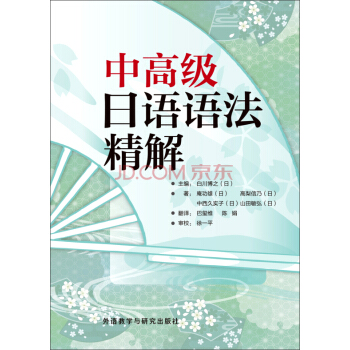
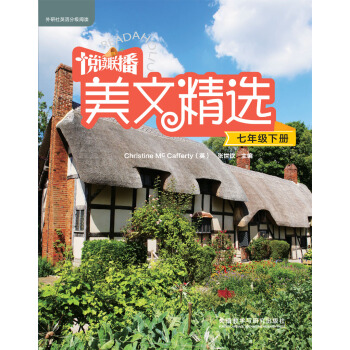






![三國演義故事(英文版) [Romance of the Three Kingdoms] pdf epub mobi 電子書 下載](https://pic.windowsfront.com/10958039/58ce7d8fNeca91d28.jpg)

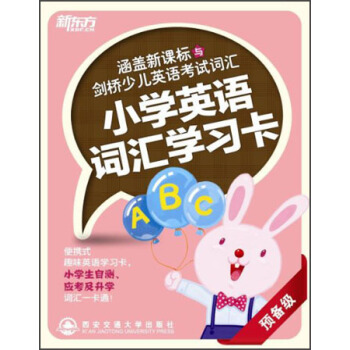
![清華英語自然拼讀故事屋A2 [4-12歲] pdf epub mobi 電子書 下載](https://pic.windowsfront.com/11230971/rBEQYFGJwx8IAAAAAAV8gr8a8jMAAAmWwI3V-YABXya575.jpg)
